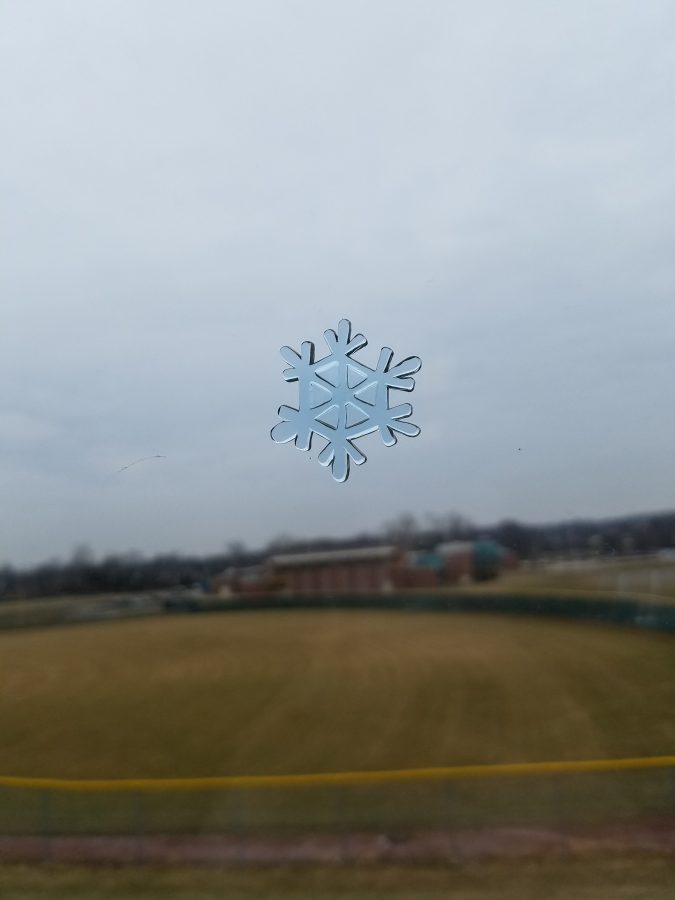What’s Causing the Early Spring Weather?
With the unpredictable weather, it could snow in Rochester one week and be sunny and warm the next.
North Americans received one of the most intemperate and unseasonal weather in years, making it appear spring came in February. The Weather Channel forecasts this month will continue last month’s trend. The cause of this early spring weather is the usual suspect: global climate change.
The polar vortex, which caused unusually cold temperatures a few years ago, is now causing the jetstream to bring waves of unpredictable and unseasonal warm temperatures followed by immoderately cold temperatures throughout the northern hemisphere. While in the short term this simply means that Spring could come early, the long term implications are far more frightening.
Global warming has been a hot topic for years. Until recently, its effects were flying under the radar of anyone who did not have a degree in meteorology. Now, however, the situation has changed, and the long term weather effects of global temperatures are visible to the naked eye.
The true humanitarian ramifications for the change in Earth’s temperature is the most plainly clear on the Pacific Coast. After a period of droughts followed by catastrophic flooding, scientists believe this series of natural disasters might become the new norm for California.
What’s more, the unpredictable aberrant weather is also disrupting natural ecological functions, such as pollination. The drought-flood cycle on the West Coast could also affect food prices, as it did in 2015.
A few decades ago, ecology and the climate might have been an impersonal and airy issue about the morality of consumption or “giving trees a chance,” but now the threat has evolved. The problem of climate change is at the gate, and its ravages are not only environmental, they are societal.
Similar to how global warming harms the economy, the way the world economy works also has a negative effect on the climate. According to a study by an international team of client scientists lead by the University of Maryland, human economics, known as the “dismal science,” is to blame for the dismal weather.
The research project’s methodology incorporated the human element into the ecological study. They reasoned that, while there is already data linking major societal changes to increases in greenhouse gas emissions (such as the advent of the Industrial Revolution), this raw data alone did not provide the information necessary to prescribe a solution.
The scientists conducting the study believe conventional ecological models do not account for the ways climate change affects society. They believe human action and climate change do not have a one sided relationship. Rather, they both affect each other in a measurable dialectic.
The project studied the ecological footprint of various societies as well as the political and economic conditions present in the societies. The team published their findings in Oxford’s National Science Review last February.
The paper proposed a revised model of human-climate interaction named “bidirectional coupling.” Its purpose is to describe how the climate affects humans and how humans in turn affect the climate.
“Ignoring this bidirectional coupling of the Earth and Human Systems can lead to missing something important, even decisive, for the fate of our planet and our species,” said researcher and professor of Columbia University Mark Cane.
The paper’s second thesis was political in nature: America has been notoriously resistant to climate change legislation. In fact, current President Donald Trump is an open climate change denier. Climate scientists believe that this “hands off” mentality is counterproductive.
“…[A]s the models are designed now, any [human] intervention — almost by definition — comes from the outside and is perceived as a cost,” said Mathias Ruth, one of the co-authors of the paper.
“Such modeling, and the mindset that goes with it, leaves no room for creativity in solving some of the most pressing challenges,” Ruth warned readers of the journal.
In the past, people have been rather apathetic toward the serious issue of climate change. However, because the issue has been well studied and modern students educated about the threat the current generation may succeed where the previous ones failed. The Kilt interviewed senior Curtis Reynolds on the freak weather.
“[The] weather has been very inconsistent. You just can’t predict it this year. It’s no fun.” Curtis said. Curtis also felt that in his lifetime the seasons themselves were changing.
“Winters used to be colder,” He recalled. “We had one big winter a few years ago, but with the other ones, the snow just didn’t last,”
Curtis also shared his view of what needs to be done to repair the damage.
“Much more needs to be done about the environment… I know how global warming is caused by burning fossil fuels, releasing methane and CO2 into the atmosphere. We learned this basic stuff in Biology.” Curtis concluded.
It is regrettable that the state of the planet has regressed this far, but it follows that people did not take ecology seriously enough to prevent it. While the people living in the present can easily feel superior when they examine the mistakes of the past, it is important to note that the information then was sparse compared to the information now.
Education, or lack thereof, is not the only factor in the level of public information about climate science. The petroleum and coal industry stands to lose billions in revenue because of the new aversion to energy sources that produce greenhouse gasses, and so they invest much of their funds in public disinformation campaigns.
The efficacy of public lobbying against climate science, however, is constantly diminishing while new studies surface and more and more schools work climate science into their curriculum.
The near future seems bleak, the Earth is a very long way from being destroyed. In fact, public opinion has warmed up to the idea of listening to climate scientists. The reality of climate change might not be pretty, but the course of the future, as ever, is still in the people’s hands.










